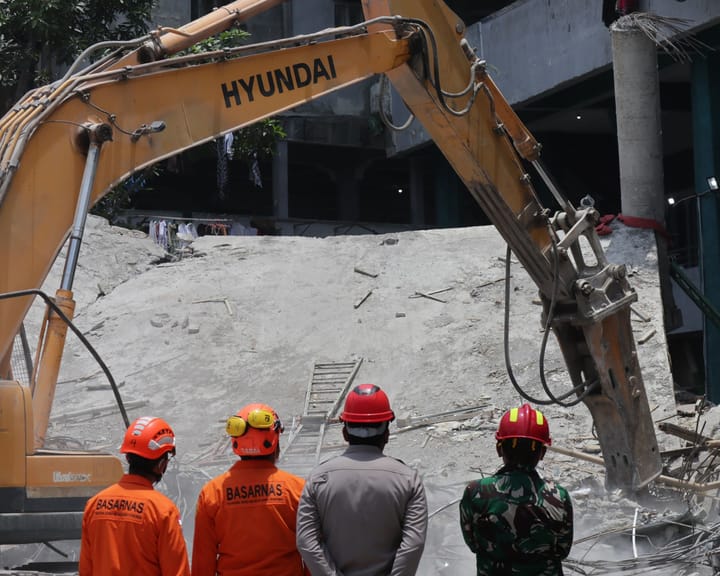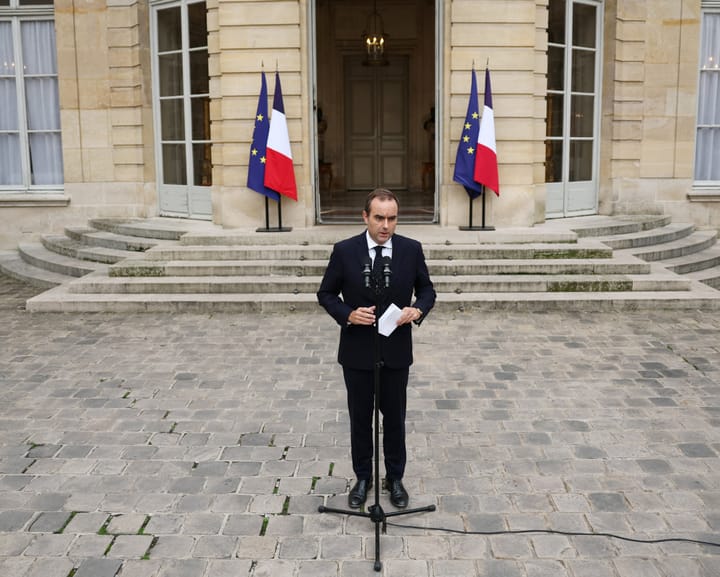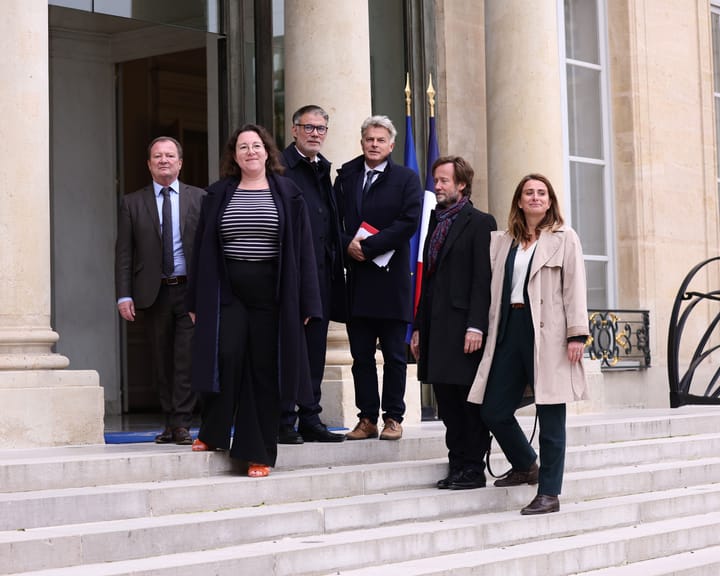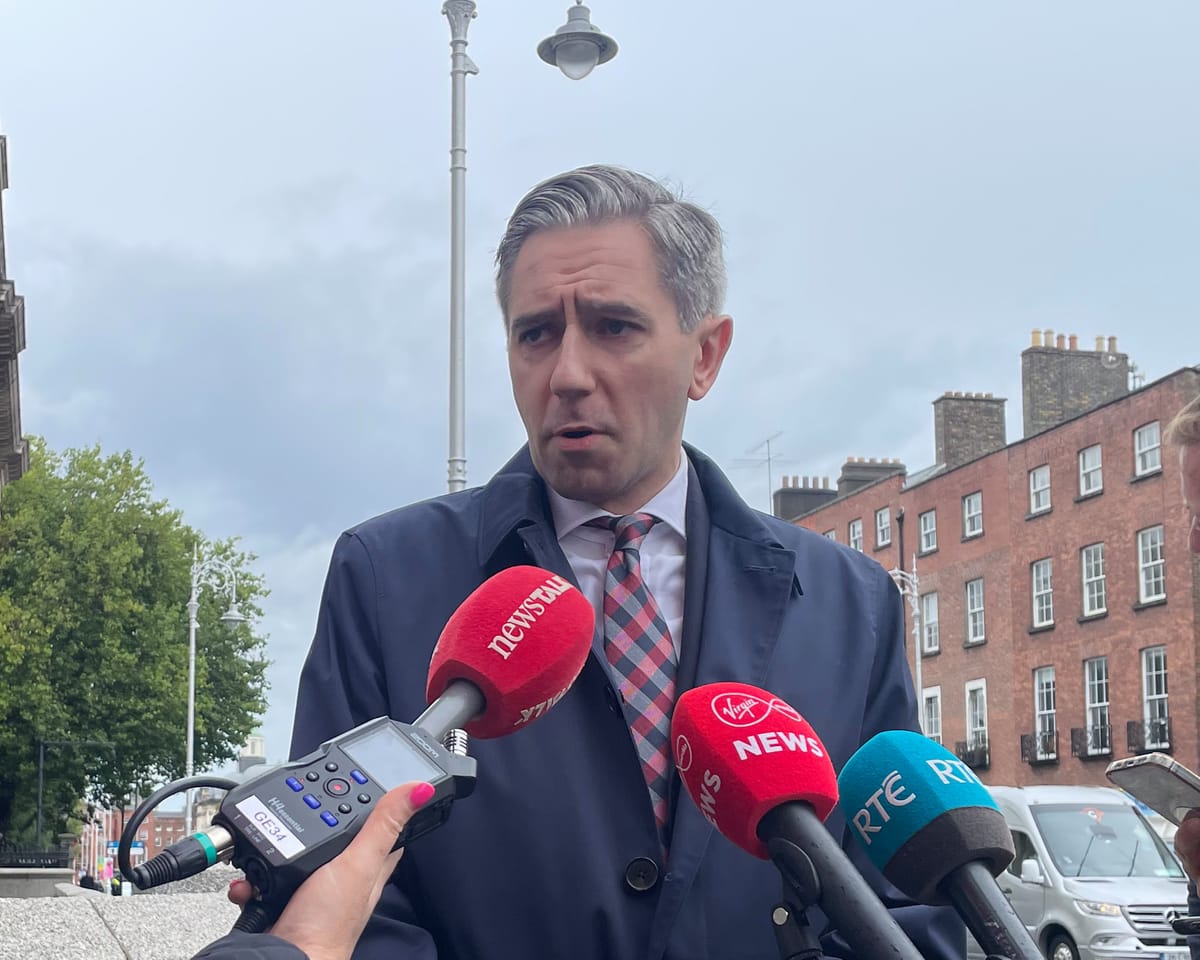Northern Ireland’s peace agreement must not be undermined by political figures in the UK who seek to withdraw from the European Convention on Human Rights if they come to power, Ireland’s deputy leader has cautioned.
The ECHR is a crucial element of the 1998 Good Friday Agreement, and abandoning it would weaken the foundations of peace, said Simon Harris, Ireland’s tánaiste.
“The protections provided by the ECHR cannot be disregarded, no matter what some political leaders suggest,” he will state during a speech at the British Irish Association conference in Oxford on Friday.
He will emphasize that the ECHR serves as a critical safeguard and is an essential part of the agreement, reflecting the shared responsibility of both nations in upholding the 1998 peace deal.
Several prominent UK political figures, including Reform UK leader Nigel Farage, shadow justice secretary Robert Jenrick, and former home secretary Suella Braverman, have supported exiting the ECHR. Conservative leader Kemi Badenoch has also indicated she would review the matter.
Additionally, Harris will announce that the UK and Irish governments will establish an independent panel to address the lingering issue of paramilitary violence and intimidation in parts of Northern Ireland, which has persisted since the peace deal over 25 years ago.
The panel will report back within a year, assessing whether a formal process to disband such groups—similar to how republican and loyalist factions were disarmed after the Good Friday Agreement—could be effective.
“This could mark the end of paramilitary activity in Northern Ireland,” Harris will say, acknowledging opposition to the panel while respecting differing opinions.
“But 27 years after the agreement, paramilitarism remains a problem. What is certain is that Northern Ireland has endured this issue for far too long,” he will add.
Excluding paramilitary groups from the original peace settlement has often been criticized as an error, as it permitted criminal activity to persist in ways unseen in other parts of the UK or Ireland.
Harris noted that paramilitarism has affected roughly one-fifth of Northern Ireland’s communities, influencing various aspects of daily life.
Last year, a UK parliamentary committee described the harm caused by these groups as a “persistent and damaging consequence of the Troubles.”
Comprising both republican and loyalist factions, these organizations engage in organized crime, housing intimidation, control over victims of violence, and illegal lending.
The committee also found that recent economic pressures had worsened the situation, with paramilitaries exploiting vulnerable individuals.
Read next

"Indonesia school collapse: rescue efforts conclude with 67 fatalities"
Search Ends After Indonesian School Collapse Leaves Dozens Dead
Indonesian rescuers concluded their search on Tuesday for victims trapped beneath the rubble of a collapsed Islamic boarding school in East Java, after recovering more than 60 bodies, authorities confirmed.
The tragedy in the town of Sidoarjo struck last week when

"French PM makes last-ditch effort to save government as crisis deepens – Europe updates"
France's Political Standoff Continues as Prime Minister Seeks Cross-Party Support
France remains at a political stalemate as the outgoing prime minister, Sébastien Lecornu, makes a final attempt to gather support from rival parties for a new government.
President Emmanuel Macron assigned Lecornu, 39, to form a government in

"Macron calls emergency talks with parties to swiftly pick new PM"
Emmanuel Macron has called upon the leaders of several political factions to his office, urging them to demonstrate "collective responsibility" as he seeks to appoint a new prime minister amid growing political turmoil.
All parties except Marine Le Pen’s far-right National Rally, the largest opposition group, and

